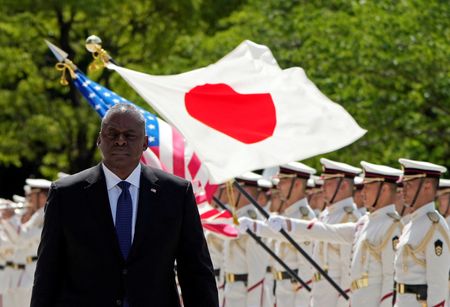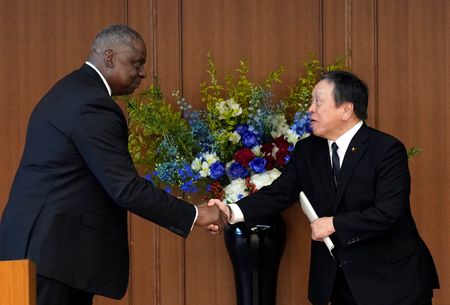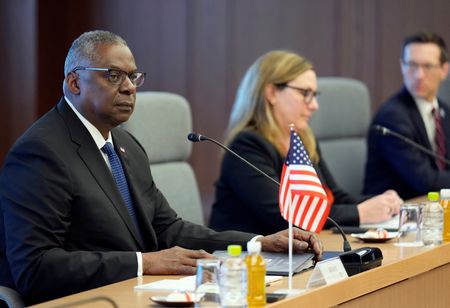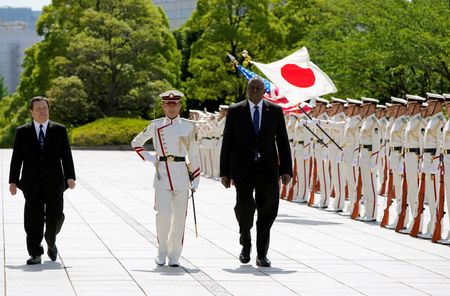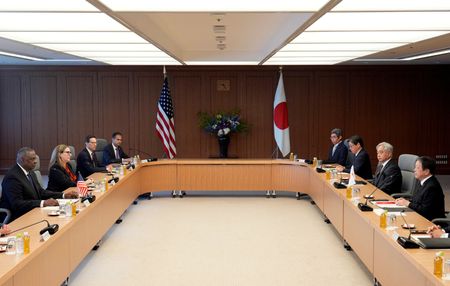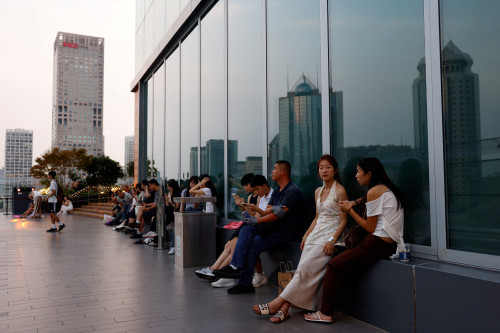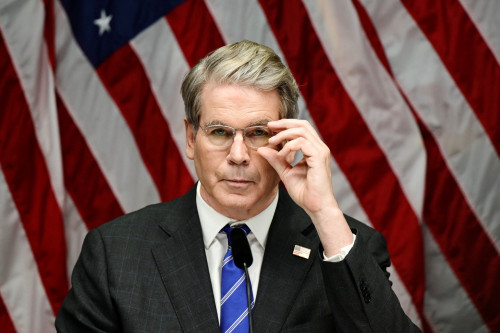By Tim Kelly
TOKYO (Reuters) -U.S. Defense Secretary Lloyd Austin said on Thursday it was “unfortunate” his Chinese counterpart had declined to meet him at an upcoming security forum because they needed to communicate to stop dangerous encounters between military aircraft.
On Tuesday, the U.S. said a Chinese fighter jet carried out an “unnecessarily aggressive” manoeuvre near a U.S. plane over the South China Sea.
“I think that is unfortunate,” Austin told a press conference in Tokyo, referring to the decision by Chinese Minister of National Defence Li Shangfu not to meet him at a conference they will both attend in Singapore this weekend.
“I would welcome any opportunity to engage with Li. I think defence departments should be talking to each other on a routine basis or should have open channels for communications.”
Austin stopped in Tokyo on his way to the annual Shangri-La Dialogue Asian security summit, which starts in Singapore on Friday.
Austin, speaking after a meeting with Japanese Defence Minister Yasukazu Hamada, said he was concerned that at some point an incident like Tuesday’s between a U.S. and Chinese aircraft “could very quickly spiral out of control”.
“The provocative intercept of our aircraft and our allies’ aircraft is very concerning and we would hope they would alter their actions,” he said.
Li is expected to meet Hamada at the Singapore conference.
Japan and China in March established a “hotline” to improve communication and defuse military friction.
Li has been under U.S. sanctions since 2018 over the purchase of combat aircraft and equipment from Russia’s main arms exporter, Rosoboronexport.
At their meeting in Tokyo, Austin and Hamada said they had discussed North Korea’s rocket launch on Wednesday, tensions with China and Russia’s attack on Ukraine.
“North Korea’s dangerous and destabilising nuclear and missile programs threaten peace and stability in the region,” Austin said.
The launch, which North Korea said was an attempt to put a military satellite into orbit, prompted emergency alerts in parts of Japan and South Korea, with residents urged to take cover.
“We are deeply concerned by the PRC’s coercive nature and its attempts to undermine the rules-based order. Meanwhile Russia continues to wage its cruel unprovoked war of choice against Ukraine,” Austin added, referring to China by the initials of its official name.
Hamada said the two had confirmed their intent to deepen security cooperation, including between their military industries, and to work more closely with South Korea, Australia other nations in tackling North Korea and other threats.
“Based on the complex security environment, we confirmed the importance of cooperation not only between Japan and the United States, but also with the Republic of Korea, Australia and ASEAN (Association of Southeast Asia Nations) countries,” Hamada told the press conference.
(Reporting by Tim Kelly and Mariko Katsumura; Editing by Tom Hogue and Gerry Doyle)

